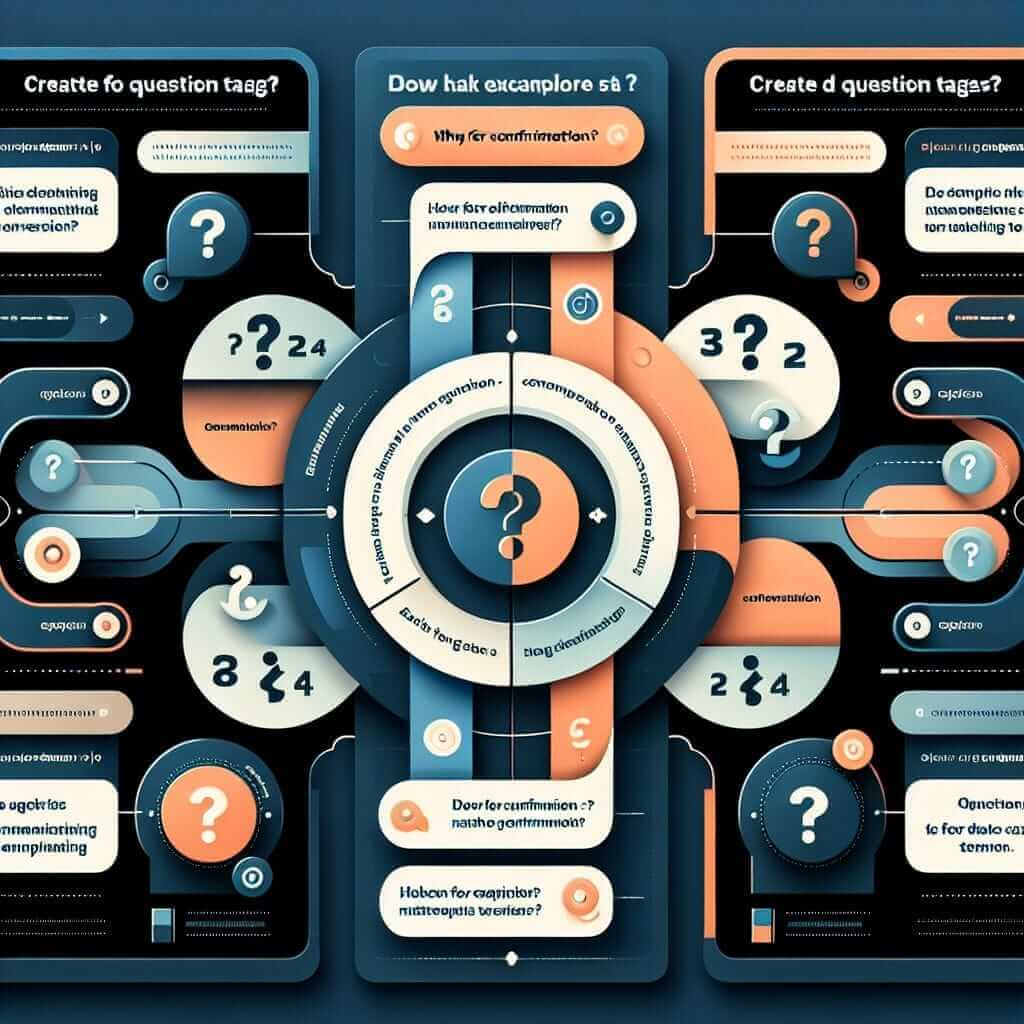Question tags – those little additions to the end of sentences like “isn’t it?” or “aren’t you?” – might seem simple, but they play a crucial role in natural-sounding English. Mastering them is key to achieving a higher band score in the IELTS Speaking test and demonstrating your command of grammar in the Writing test. Let’s break down how question tags work, their significance in the IELTS exam, and how you can use them confidently.
Understanding Question Tags and Their Importance
Question tags are short questions added to the end of a statement. They serve two main purposes:
- Seeking Confirmation: We use them to confirm something we already believe to be true.
Example: “The weather is lovely today, isn’t it?” (We expect the listener to agree.) - Keeping a Conversation Flowing: They engage the listener and invite a response, making conversations more dynamic.
Example: “You haven’t been here before, have you?” (This encourages the listener to share their experience.)
In the IELTS Speaking test, using question tags effectively demonstrates your ability to:
- Use a range of grammatical structures accurately.
- Communicate effectively and naturally.
- Manage a conversation smoothly.

Mastering Question Tag Formation
The golden rule of question tags is simple:
If the statement is positive, the tag is negative. If the statement is negative, the tag is positive.
Here’s the basic structure:
[Auxiliary Verb (be, do, have) + Subject Pronoun + Question Mark?]
Let’s look at some examples:
Positive Statement + Negative Tag:
- “You are a student, aren’t you?”
- “She has finished her work, hasn’t she?”
- “They can swim, can’t they?”
Negative Statement + Positive Tag:
- “He isn’t coming, is he?”
- “We didn’t see her, did we?”
- “You won’t be late, will you?”
Special Cases:
- “I am” becomes “aren’t I?”: “I am a bit early, aren’t I?”
- Imperatives use “will/won’t you?”: “Close the door, will you?”
- “Let’s” uses “shall we?”: “Let’s have lunch, shall we?”
Applying Question Tags in IELTS
Speaking Test:
- Part 1 (Introduction and Interview): Use question tags to confirm information or keep the conversation flowing.
- Examiner: “You’re studying English, aren’t you?”
- You: “Yes, I am. I’m preparing for the IELTS exam, actually.”
- Part 3 (Discussion): Employ question tags to engage with the examiner’s prompts and express your opinions more naturally.
- Examiner: “What are the benefits of learning a new language?”
- You: “Well, it broadens your horizons, doesn’t it? You get to experience different cultures and ways of thinking.”
Writing Test (Task 2 – Essay):
While question tags are more common in spoken English, they can be used cautiously in writing to engage the reader and present a more conversational tone. However, avoid overusing them, especially in formal essays.
- Example: “Many people believe that technology has made our lives easier, and it’s hard to disagree, isn’t it? However…”
Common Mistakes and How to Avoid Them
- Incorrect Auxiliary Verb: Using the wrong auxiliary verb is a common error. Pay close attention to the main verb in the statement to choose the correct auxiliary for the tag.
- Incorrect: “He likes pizza, doesn’t he?”
- Correct: “He likes pizza, does he?”
- Double Negatives: Avoid using a negative tag after a negative statement.
- Incorrect: “They haven’t seen the film, haven’t they?”
- Correct: “They haven’t seen the film, have they?”
Conclusion
Mastering question tags may seem like a small detail, but it can make a big difference in your IELTS performance. By understanding the rules, practicing their use, and being mindful of common errors, you can use question tags confidently to enhance your fluency and accuracy in the exam. Remember, consistent practice is key to achieving your desired band score!